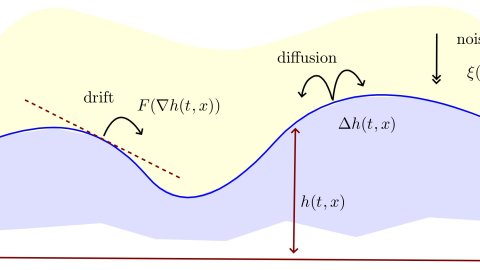Structural identifiability analysis: An important tool in systems modelling
Abstract
For many systems (certainly those in biology, medicine and pharmacology) the mathematical models that are generated invariably include state variables that cannot be directly measured and associated model parameters, many of which may be unknown, and which also cannot be measured. For such systems there is also often limited access for inputs or perturbations. These limitations can cause immense problems when investigating the existence of hidden pathways or attempting to estimate unknown parameters and this can severely hinder model validation. It is therefore highly desirable to have a formal approach to determine what additional inputs and/or measurements are necessary in order to reduce or remove these limitations and permit the derivation of models that can be used for practical purposes with greater confidence.
Structural identifiability arises in the inverse problem of inferring from the known, or assumed, properties of a biomedical or biological system a suitable model structure and estimates for the corresponding rate constants and other model parameters. Structural identifiability analysis considers the uniqueness of the unknown model parameters from the input-output structure corresponding to proposed experiments to collect data for parameter estimation (under an assumption of the availability of continuous, noise-free observations). This is an important, but often overlooked, theoretical prerequisite to experiment design, system identification and parameter estimation, since estimates for unidentifiable parameters are effectively meaningless. If parameter estimates are to be used to inform about intervention or inhibition strategies, or other critical decisions, then it is essential that the parameters be uniquely identifiable.
Numerous techniques for performing a structural identifiability analysis on linear parametric models exist and this is a well-understood topic. In comparison, there are relatively few techniques available for nonlinear systems (the Taylor series approach, similarity transformation-based approaches, differential algebra techniques and the more recent observable normal form approach and symmetries approaches) and significant (symbolic) computational problems can arise, even for relatively simple models in applying these techniques.
In this talk an introduction to structural identifiability analysis will be provided demonstrating the application of the techniques available to both linear and nonlinear parameterised systems and to models of (nonlinear mixed effects) population nature.
Differential Equation-inspired Deep Learning for Node Classification and Spatiotemporal Forecasting
Abstract
Scientific knowledge, written in the form of differential equations, plays a vital role in various deep learning fields. In this talk, I will present a graph neural network (GNN) design based on reaction-diffusion equations, which addresses the notorious oversmoothing problem of GNNs. Since the self-attention of Transformers can also be viewed as a special case of graph processing, I will present how we can enhance Transformers in a similar way. I will also introduce a spatiotemporal forecasting model based on neural controlled differential equations (NCDEs). NCDEs were designed to process irregular time series in a continuous manner and for spatiotemporal processing, it needs to be combined with a spatial processing module, i.e., GNN. I will show how this can be done.
Data-driven surrogate modelling for astrophysical simulations: from stellar winds to supernovae
Abstract
The feedback loop between simulations and observations is the driving force behind almost all discoveries in astronomy. However, as technological innovations allow us to create ever more complex simulations and make ever more detailed observations, it becomes increasingly difficult to combine the two: since we cannot do controlled experiments, we need to simulate whatever we can observe. This requires efficient simulation pipelines, including (general-relativistic-)(magneto-)hydrodynamics, particle physics, chemistry, and radiation transport. In this talk, we explore the challenges associated with these modelling efforts and discuss how adopting data-driven surrogate modelling and proper control over model uncertainties, promises to unlock a gold mine of future discoveries. For instance, the application to stellar wind simulations can teach us about the origin of chemistry in our Universe and the building blocks for life, while supernova simulations can reveal exotic states of matter and elucidate the formation black holes.


